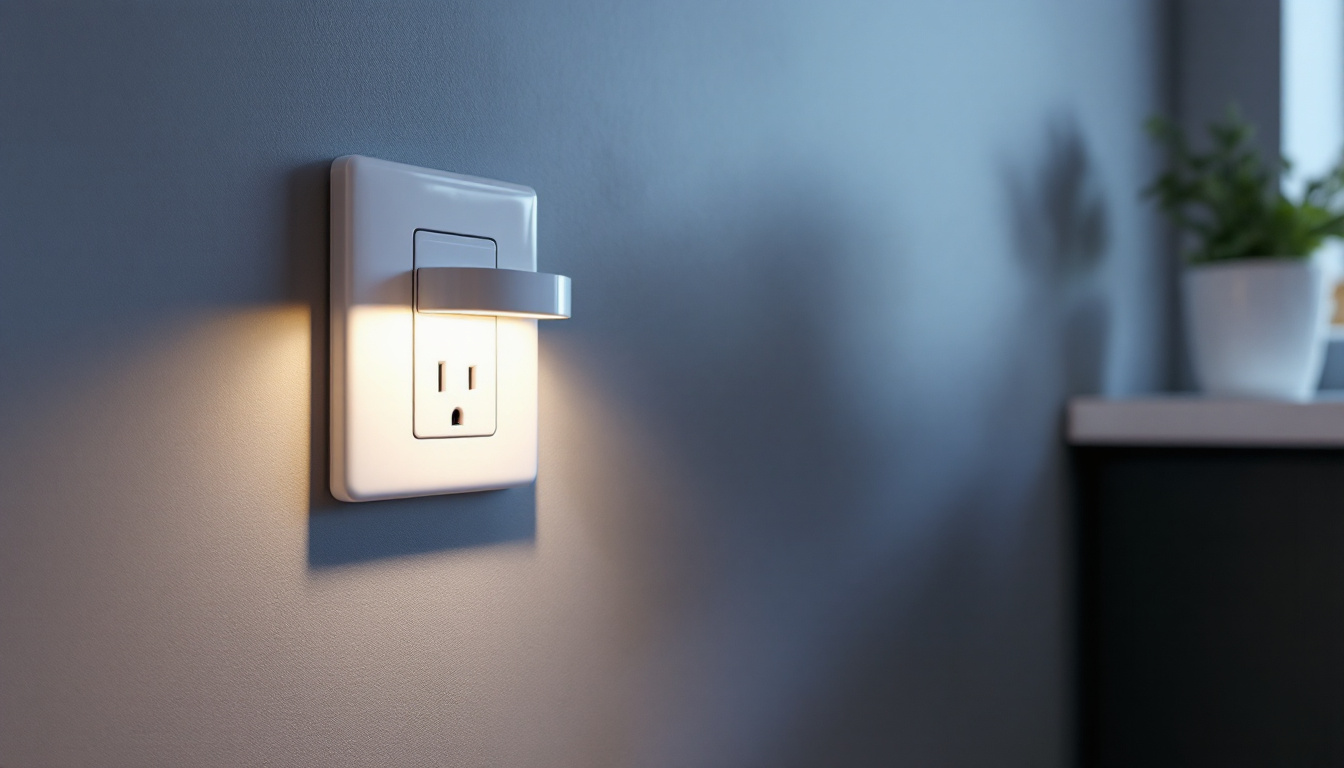
As the world continues to evolve technologically, the lighting industry has seen a significant transformation. smart lighting solutions are becoming increasingly popular, offering energy efficiency, convenience, and enhanced control. For lighting contractors, staying ahead of the curve means embracing these innovations and understanding the various approaches to smart lighting installations. This article delves into the strategies and techniques that modern lighting contractors can employ to successfully integrate smart lighting into their projects.
Smart lighting refers to lighting systems that can be controlled remotely via smartphones, tablets, or other smart devices. These systems often include features such as dimming capabilities, color changing, and scheduling options, allowing users to customize their lighting experience. For contractors, understanding the fundamentals of smart lighting is crucial to providing clients with tailored solutions that meet their specific needs.
At the core of smart lighting systems are several key components. These include smart bulbs, smart switches, and hubs that connect various devices. Smart bulbs can be controlled individually or as part of a group, while smart switches allow for the control of traditional lighting fixtures. Hubs serve as the central point of communication, enabling different devices to work together seamlessly.
Moreover, many smart lighting systems are compatible with voice assistants, adding another layer of convenience. This integration allows users to control their lighting with simple voice commands, further enhancing the user experience. Additionally, some systems offer motion sensors that can automatically adjust lighting based on occupancy, ensuring that lights are only on when needed, which further contributes to energy savings.
The advantages of smart lighting extend beyond mere convenience. Energy efficiency is one of the most significant benefits, as smart systems can be programmed to turn off when not in use or adjust based on natural light levels. This can lead to substantial savings on energy bills over time.
Additionally, smart lighting can enhance security. Homeowners can program lights to turn on and off at specific times, giving the impression that someone is home, which can deter potential intruders. Furthermore, the ability to control lighting remotely provides peace of mind, especially for those who travel frequently. This feature can also be integrated with security cameras and alarm systems, creating a comprehensive home security solution that not only monitors but also actively deters unwanted visitors.
Another noteworthy benefit of smart lighting is its impact on mood and productivity. Studies have shown that different lighting conditions can significantly affect our emotional states and focus levels. For instance, cooler, brighter lights can enhance alertness and concentration, making them ideal for workspaces, while warmer, softer lights can create a relaxing atmosphere in living areas or bedrooms. By allowing users to adjust their lighting to suit various activities throughout the day, smart lighting systems can contribute to a healthier and more productive lifestyle.
For lighting contractors looking to integrate smart lighting solutions into their offerings, several approaches can be adopted. These strategies not only enhance service delivery but also ensure client satisfaction and project success.
Before embarking on a smart lighting project, it is essential for contractors to conduct a thorough assessment of the client’s needs and preferences. This involves understanding the specific requirements of the space, the desired ambiance, and the client’s lifestyle. A detailed consultation allows contractors to recommend the most suitable smart lighting solutions tailored to the client’s unique situation.
During this phase, contractors should also educate clients about the various features and benefits of smart lighting. This knowledge empowers clients to make informed decisions and fosters trust in the contractor’s expertise. Additionally, discussing the energy efficiency and cost-saving potential of smart lighting can be a persuasive factor for clients, as many are increasingly conscious of their environmental impact and utility expenses. By highlighting these aspects, contractors can position themselves as not just service providers but as partners in sustainability.
Once the assessment is complete, the next step is designing an effective smart lighting plan. This involves selecting the right products, determining the optimal placement of fixtures, and creating a cohesive design that aligns with the client’s vision. Contractors should consider factors such as the room’s function, existing architecture, and the desired mood when planning the layout.
Incorporating flexibility into the design is also vital. Smart lighting systems should be adaptable to future changes, whether that means adding new fixtures or integrating additional smart devices. This foresight can enhance the longevity and functionality of the installation. Furthermore, contractors may want to explore the integration of lighting controls that allow for customization through mobile apps or voice commands, providing clients with a modern and convenient user experience. By showcasing innovative solutions, contractors can differentiate themselves in a competitive market.
Proper installation is critical to the success of any smart lighting project. Contractors must ensure that all components are installed correctly and that the system is integrated seamlessly with the client’s existing infrastructure. This may involve working with other trades, such as electricians or home automation specialists, to ensure compatibility and optimal performance.
Moreover, contractors should conduct thorough testing of the system post-installation. This includes verifying that all devices communicate effectively, ensuring that the app functions as intended, and confirming that the client is satisfied with the setup. Providing a comprehensive walkthrough of the system’s features will also empower clients to utilize their new smart lighting effectively. Additionally, offering ongoing support and maintenance options can further enhance the client relationship, ensuring that they feel supported long after the installation is complete. This proactive approach not only builds loyalty but also opens the door for future projects and referrals, creating a sustainable business model for lighting contractors.
The lighting industry is constantly evolving, with new technologies and trends emerging regularly. For contractors, staying updated is essential to remain competitive and provide clients with the best possible solutions.
Investing in continuous education and training is crucial for lighting contractors. Attending workshops, webinars, and industry conferences can provide valuable insights into the latest smart lighting technologies and trends. Additionally, many manufacturers offer training programs that can help contractors become proficient in specific products and systems.
By staying informed about advancements in smart lighting, contractors can better advise clients and implement cutting-edge solutions that enhance their projects. This commitment to learning not only improves service quality but also positions contractors as industry leaders.
Building relationships with other industry professionals can provide contractors with valuable resources and insights. Networking with electricians, interior designers, and home automation experts can lead to collaborative opportunities and referrals. Sharing knowledge and experiences can also foster innovation and inspire new ideas for smart lighting projects.
Participating in local trade associations or online forums can further expand a contractor’s network, providing access to a wealth of information and support from peers in the industry.
Effectively marketing smart lighting services is essential for contractors looking to expand their client base. With the increasing interest in smart home technologies, targeted marketing strategies can help attract potential customers.
One effective way to market smart lighting services is by showcasing completed projects. High-quality images and detailed descriptions of past installations can demonstrate a contractor’s expertise and the transformative power of smart lighting. Including testimonials from satisfied clients can further enhance credibility and encourage potential customers to consider smart lighting solutions.
Utilizing social media platforms to share project highlights can also increase visibility and engagement. Regularly posting content related to smart lighting trends, tips, and innovations can position the contractor as a knowledgeable resource in the field.
Creating promotional offers or bundled packages can attract new clients and incentivize existing customers to upgrade their lighting systems. For example, offering discounts on smart lighting installations during specific seasons or combining smart lighting with other services can create compelling value propositions.
Additionally, providing free consultations or demonstrations can encourage potential clients to explore smart lighting options without any initial commitment. This approach can lead to increased interest and ultimately drive sales.
While smart lighting offers numerous benefits, contractors may encounter challenges during installation and integration. Understanding these potential obstacles and having strategies in place to address them is crucial for a successful project.
One common challenge in smart lighting installations is compatibility between different devices and systems. With a plethora of products available on the market, ensuring that all components work together seamlessly can be daunting. Contractors should conduct thorough research on the products they recommend and ensure that they are compatible with the client’s existing infrastructure.
To mitigate compatibility issues, contractors can opt for products from the same manufacturer or those that adhere to common standards. This can simplify the integration process and reduce the likelihood of technical difficulties.
Some clients may be hesitant to embrace smart lighting due to concerns about complexity or unfamiliarity with technology. To address this, contractors should prioritize education and communication. Providing clear explanations of how smart lighting works and demonstrating its benefits can help alleviate fears and encourage adoption.
Offering ongoing support and assistance post-installation can also reassure clients. By being available to answer questions and provide guidance, contractors can foster a positive relationship and encourage clients to fully utilize their smart lighting systems.
The integration of smart lighting solutions presents exciting opportunities for lighting contractors. By understanding the components of smart lighting, adopting effective approaches, and staying updated with industry trends, contractors can successfully navigate this evolving landscape. Through continuous education, effective marketing, and addressing challenges head-on, lighting contractors can position themselves as leaders in the smart lighting arena, delivering exceptional value to their clients.
As the demand for smart lighting continues to grow, those who embrace these innovations and adapt their strategies will undoubtedly thrive in the competitive lighting market. The future of lighting is bright, and with the right approaches, contractors can illuminate the path to success.
Ready to elevate your lighting projects and outshine the competition? At LumenWholesale, we provide lighting contractors like you with the highest quality, spec-grade lighting products at prices that can’t be beaten. Say goodbye to local distributor markups and hello to our extensive selection that meets rigorous industry standards. With free shipping on bulk orders, you can stock up on premium lighting solutions without worrying about hidden fees. Don’t compromise on quality or value—choose LumenWholesale for the perfect fusion of affordability and convenience. Wholesale Lighting at the Best Value is just a click away. Transform your approach to smart lighting with LumenWholesale today.

Discover innovative hacks for smart lighting contractors to enhance efficiency and aesthetics with fluorescent lamps featuring diffusers.

Discover the transformative power of universal lights in modern lighting installations.

Discover how Black Friday lighting sales boost safety in lighting installations, offering quality upgrades, cost savings, and expert tips—maximize your safety today!.

Discover how upgrading to a dryer wall outlet can enhance efficiency and safety for lighting contractors.